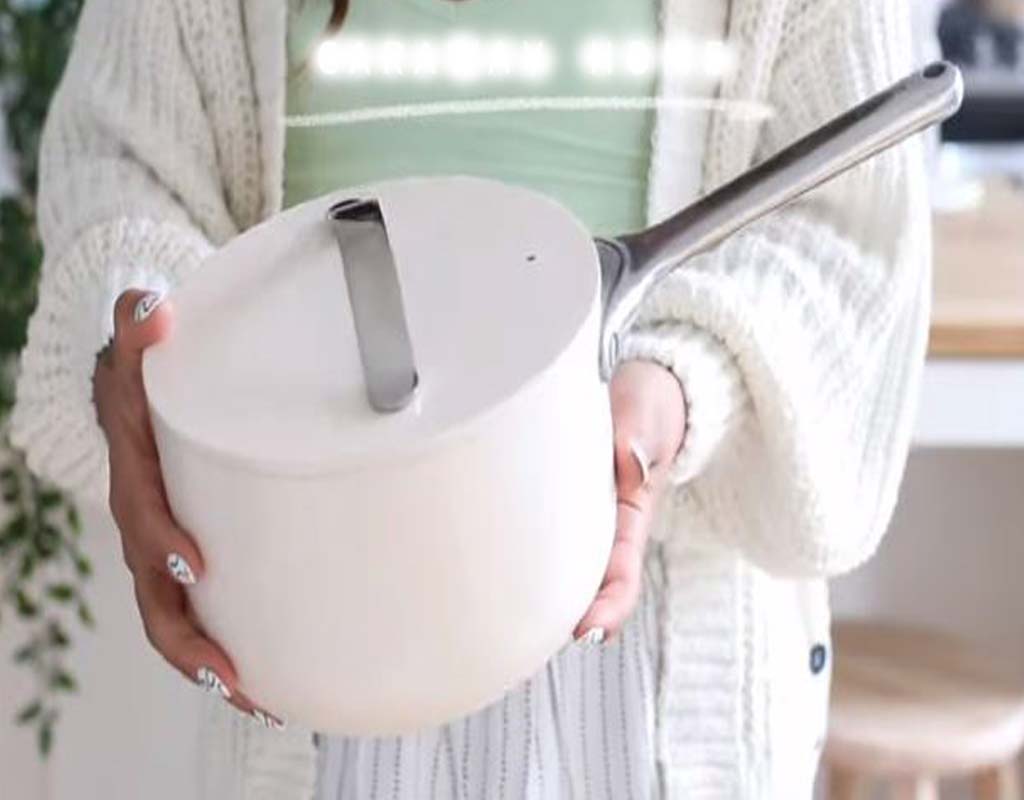Although most manufacturers provide safety and maintenance tips to take care of nonstick cookware sets, it will do you no harm digging deeper. In fact, it’s you who can decide how long your appliances last. I know you clean your nonstick pan, but do you do it the right way? Do you use the right utensils on them?
Some of these tips do not require any finds to implement, and when done the right way, you will always get the best from your cookware. Sometimes we tend to ignore minute details, not knowing that they are the ones that matter the most. If you follow these basic and affordable tips, you will increase your cookware's life for sure.
How to take care of Nonstick Cookware
Wash New Nonstick Cookware Before Initial Use
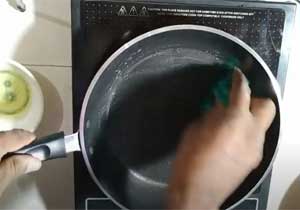
To ensure safety, always wash new nonstick cookware thoroughly before cooking on it after purchasing. This will help you remove residues left during manufacture. Also, you'll be able to remove dirt that accumulate when shipping.
Use a cloth and soapy warm water to wash. Then, rinse well enough and dry with a cloth. Generally, nonstick cookware is easy to clean with minimum effort.
Use The Right Utensils On Nonstick Cookware
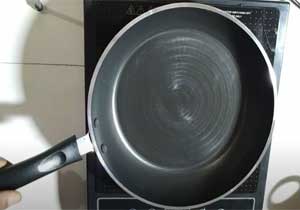
Never use metal, sharp or rough utensils on nonstick cookware. These include spoons and spatula. This is because sharp or rough utensils will scratch the coating of the cookware.
There are two reasons for this; first, these coating materials may end up in your food and cause serious health problems. Mind you. Some are carcinogenic. Second, when the coat has scratches, the cookware's life will reduce hence leading to losses.
Use wooden utensils, plastic utensils, safe spatula, or even silicone utensils with no sharp or rough edges to be safe. The same goes for using knives on the cookware's surface to cut ingredients or already cooked food.
This calls for better preparation methods and food serving strategies that will keep such utensils out of the cookware. This will help extend your nonstick cookware's life.
Pre-treat Your Nonstick Cookware Before Cooking
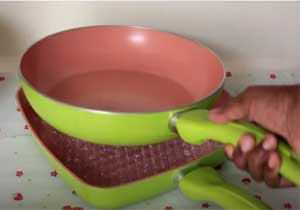
Even though we call them nonstick cookware, sometimes they do stick a little. To prevent this, rub a little oil on the cookware's surface every time before cooking. Mostly, manufacturers will indicate that you do not need to add oil. Disregard that and do what will help extend your cookware's life.
However, do not use oil sprays. This is because they release some types of chemicals that threaten the coating of the cookware. Also, oil sprays tend to form a sticky layer that doesn't melt away.
Check On the Level of Heat
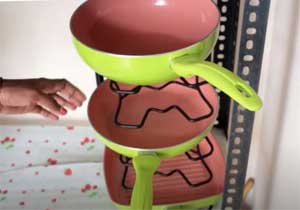
If you want the best out of your nonstick cookware, I recommend using it on either low or moderate heat. This is because the coat may not withstand high temperatures. Also, ensuring that the flame does not exceed the cookware's bottom surface is a good thing.
Another tip is to always prepare all the ingredients and additives before cooking. Some people start cutting onions when the cookware is already on fire. Heating empty nonstick cookware will result in high temperatures. In addition to this, overheating cookware will weaken it, reducing its life.
Do Not Store Food in Nonstick Cookware
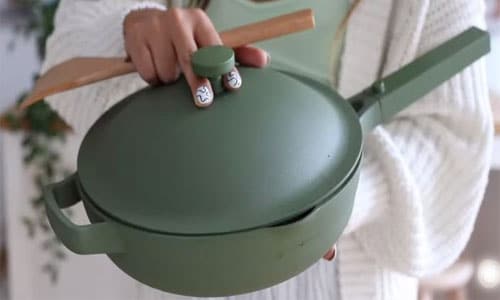
Most people store food in the original cooking vessel to make it easy if they need to warm it later. While that may be the case, it is worth noting that storing food in nonstick cookware may deteriorate its quality.
This is because some wet food will keep the coat soaked or dampened, increasing the chances of wearing out. Also, acidic foods are harsh on the coat and may deteriorate it. So, neither should you cook or store acidic food on nonstick cookware.
Always take your time to empty food from the nonstick cookware and store it in food-safe storage dishes.
Avoid Sudden Change in Temperatures
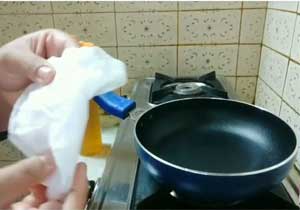
After cooking, it is necessary to allow your nonstick cookware to cool slowly. Some people take the cookware from the fire directly to the sink where cold water is running. This is not a decent idea since the coat may suddenly break. Also, the cookware may get deformed, making it difficult to cook with.
Always Practice Handwashing
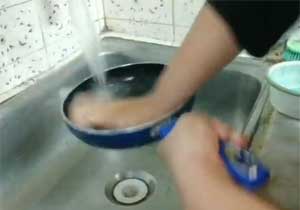
To extend the life of your nonstick cookware, always hand wash it. The best thing to use in warm soapy water. Most detergents have some chemicals that may be harsh on the coating; hence they should have avoided.
While a soft dishcloth or simply some linen, scrubbers should be avoided completely. This is because they are so rough and will remove the coating of the nonstick cookware. When washing, always ensure that you remove all the food remains and rinse well. Lastly, dry the cookware using a cloth. This will ensure that no limescale will form on the cookware.
Proper Storage
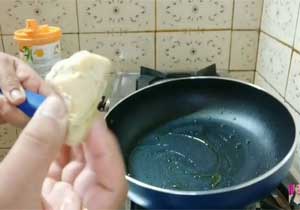
Storage condition is one of the essential factors of extending the life of almost everything. However, most people overlook it and end up messing with their appliances. For nonstick cookware, you need to take extra storage care.
First, always ensure they are clean and dry before storing. If stalking them together, always use some cushion to keep them independent. You could do this using paper, a piece of cloth, or a napkin. This will prevent the bottom of the top one from scratching the coat of the bottom one.
Finally, do not close their lids. Instead, place the lids upside down on top of individual cookware. If you close them, they may develop an odor that will maybe dissolve in food. This may make it uncomfortable to eat or even cook on them. Keeping them fresh will ensure consumer safety.
You May Like:
Best Farberware Cookware Sets of 2023 Reviews and Guides
Best Granite Stone Cookware Reviews and Guide of 2023
Best All Clad Cookware Sets Reviews and Guide in 2023
Top 10 Best Induction Cookware Sets Reviews and Guides
Top 10 the Best Cookware Sets under 200
Top 10 The Best Space Saving Cookware Sets Reviews and Guides
Final Words
Extending the life of your nonstick cookware entirely depends on how you handle them. From cleaning, regulation of temperatures, safe use of right utensils on them to finally storing them. Cookware sets come with a cost, and for sure, you don't want to go purchasing new ones every other time.
When the coating starts peeling off, it poses a risk to your health, and you will be forced to discard it for a new one. The above maintenance and safety tips are cheap to provide, and they will extend your cookware's life the way you need it.

